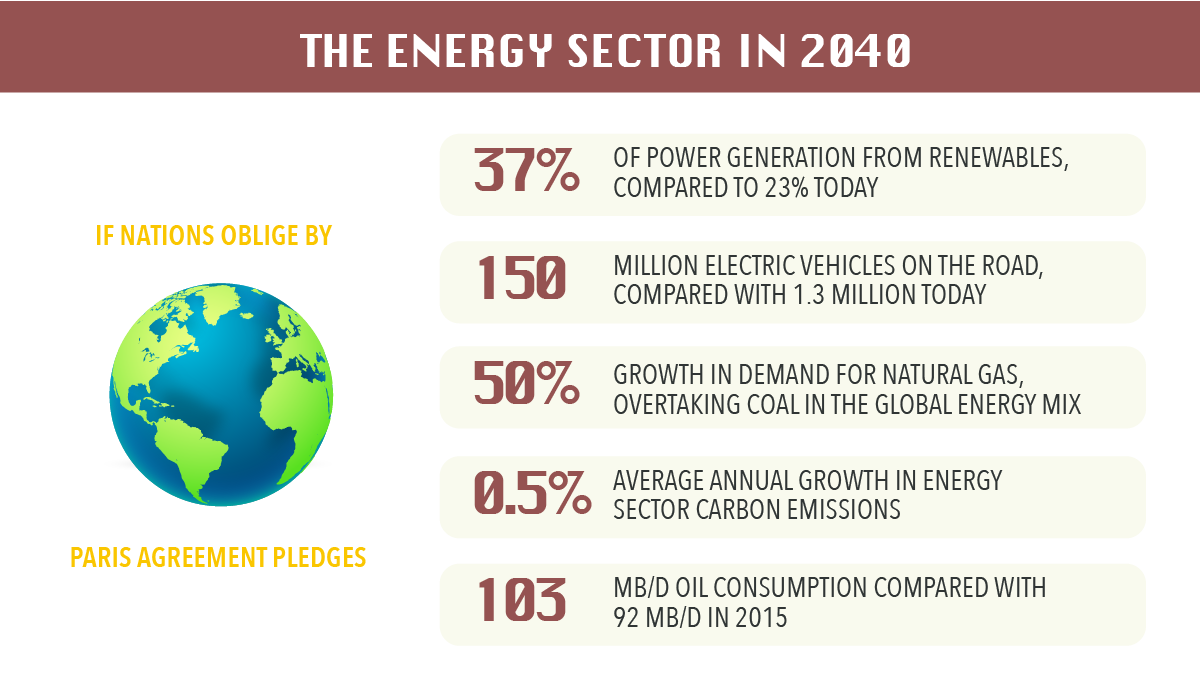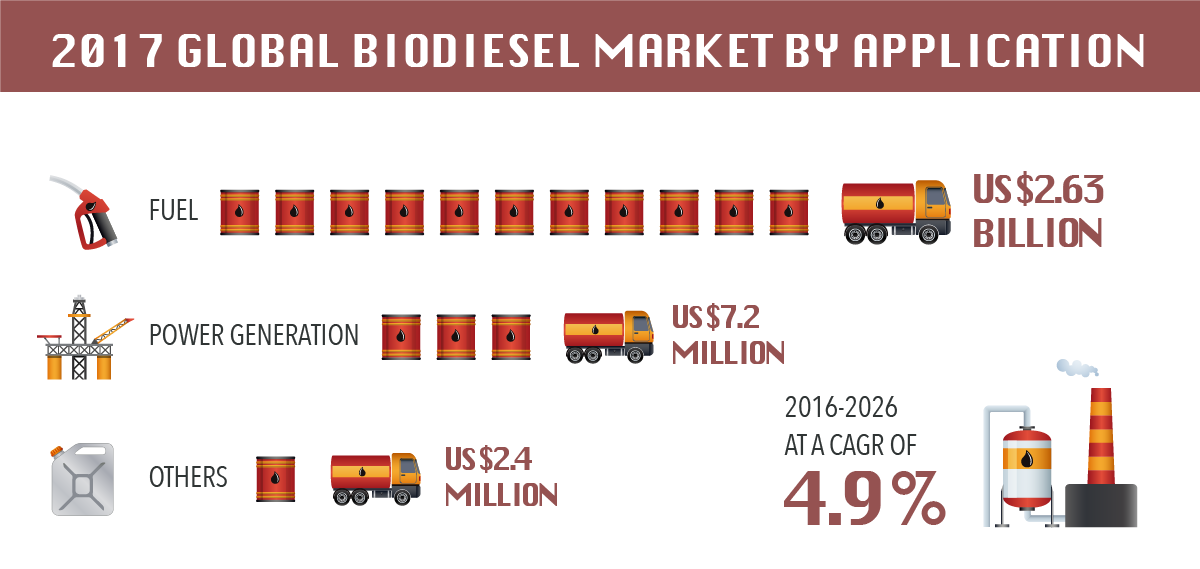The toxicity of fossil fuels has been highlighted by recent scandals involving major car manufacturers such as Volkswagen, BMW AG and Chrysler AG, using software to cheat emissions tests. Diesel, often marketed in the past as “clean fuel”, is responsible for 38,000 premature deaths per year globally due to its usage in heavily populated areas all across the world. Petroleum diesel and gasoline consist of hundreds of different chemicals blended, many of which are hazardous and toxic to both humans and the environment. In contrast, biofuels provide a clean alternative to many of the fossil fuels we currently use and can be manufactured from crops which sequestrate carbon dioxide (CO2) as they grow.
According to the United States’ Energy Information Administration (EIA), the consumption of crude oil is expected to reach 99 million barrels per day in 2018. Fossil fuels are the biggest contributors of CO2 emissions and major contributors of greenhouse gases (GHG), which drive climate change across our planet. According to the International Energy Agency’s CO2 Emissions from Fuel Combustion Overview 2017, the average concentration of CO2 (403 ppm) in 2016 was 40% higher than in the mid-1800’s, with an average concentration increase of 2ppm a year in the last ten years. The consequences of this increase can be seen in the changing climate of our planet, which is leading to increased environmental and social risks for people around the world. Since 2016, the Paris Climate agreement has aimed to keep the global temperature increase below two degrees Celsius above pre-industrial levels. In order to achieve this, many major economies have agreed to reduce their CO2 emissions. However, at the same time, the G20 still provides huge subsidies to fossil fuel production while funding for renewable energy sources remains low and limited.

Source: World Health Organization
The EIA’s latest International Energy Outlook 2017 projects that world energy consumption will grow by 28% between 2015 and 2040. Although the EIA expects renewables and nuclear fuels to grow faster than fossil fuels during this period, they will still account for more than 75% of world energy consumption through to 2040.

Source: International Energy Agency
Biofuels are an attractive option to reduce CO2 emissions. While the production of biofuels can result in GHG emissions at several stages during the development process, the Environmental Protection Agency’s analysis of the Renewable Fuel Standard projected that several types of biofuels could yield lower lifecycle GHG emissions than gasoline over a 30 year period. Academic studies using other economic models have confirmed that biofuels can lead to reductions in lifecycle GHG emissions relative to conventional fuels. Fossil fuels are exhaustible resources, whereas biofuels are produced from renewable feedstocks, meaning that theoretically, they could be sustained indefinitely.
The global biofuels market was valued at $168 billion in 2016 and is expected to reach $218.7 billion by 2026. On the basis of application, the biofuels market is divided into edible oil, cosmetics, bio-diesel, lubricants, surfactants and other applications. Ironically, biofuels have been around as long as cars have. In 1897, the inventor of the diesel engine, Rudolf Diesel, originally experimented with biodiesel before the petroleum industry began making diesel fuel, and at the start of the 20th century, Henry Ford planned to fuel his Model T with ethanol. The use of biofuel was halted by the economic interests and the influence of oil companies at the time. Today ethanol is one the most commonly used biofuels, and much of the gasoline in the US is blended with ethanol. For decades, Brazil has turned sugarcane into ethanol, and some cars can run on 100% ethanol rather than as an additive to fossil fuels. And biodiesel—a diesel-like fuel commonly made from palm oil—is generally available across Europe.

Source: Market Research
Research into the use of neem oil as a biofuel has been conducted in order to evaluate its performance and to compare it with other commonly used types of fuels. The preliminary tests conducted with neem fruits and seed oil highlighted that biofuel produced from neem oil had more purity, meaning it can be burnt as a cleaner source of fuel, with less CO2 emissions than other biodiesels and at a cheaper price per liter. However, worldwide production of neem would have to increase exponentially to produce a sufficient amount of oil to be extracted and converted into biodiesel. Nevertheless, filtered neem oil has the potential to substitute diesel due to its calorific value, density and viscosity, which are comparable with traditional diesel and other biodiesel alternatives.
Primal is always looking towards the future of humanity. We believe that the natural solution will always be the best solution. The neem tree offers diverse opportunities throughout different industries and is our pathway towards a more sustainable and intelligent future in which humanity takes advantage of natural resources in a modern and sustainable manner. We have developed our own Zero Carbon Footprint Plan, with the objective to utilize 100% clean and renewable energy on our agricultural projects while reducing demand for fossil fuel energy generation. We plan to forgo our reliance on the Brazilian National Grid for our energy needs, in order to fulfill our energy requirements through renewable sources. Having successfully implemented the first phase of this plan, our solar panel project that now has the ability to generate up to 42.3-megawatt hours per year at full capacity, which equates to around 20% of our annual energy consumption in Brazil.